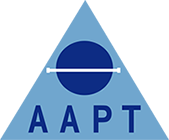News
National Conference in Pregnancy and Infant Loss
Debby Foster FAAPT reports from the National Conference in Pregnancy and Infant Loss at the Holiday Inn in Kensington, London held on 26th March 2017

The Conference was aimed at professionals dealing with families who have experienced a pregnancy and infant loss both in the hospital environment and in the community.
Numerous charities were represented at the conference and most charities had their own exhibitors stand, providing information about the services they offer.
The Conference was introduced by Dr Chantal Lockey the CEO of the Foundation for Infant Loss Training who gave her own personal experience of loss. This was followed by a short film “The Deafening Silence” demonstrating stillbirth from a mother’s perspective.
There were various talks throughout the day from parents and charities detailing their own experiences with pregnancy and infant loss, and their reasons for why they started a charity. A few to note were:
Maggie George, a bereavement officer and councillor from the London area gave an informative talk about setting up a bereavement service and the sort of care that can be provided.
A midwife spoke about how student midwives could gain experience in dealing with grieving families, and how they should care for their own mental health after being exposed to front line grief.
The charitable organisation ‘4Louis’ gave a presentation and a short film covering the loss of their child that led to them creating a national charity that delivers ‘Memory Boxes’ and ‘Cold Cots’ to maternity units across the UK. Also a charitable organisation called ‘Remember My Baby’ spoke about providing bereavement photography to maternity units across the UK and then showed a short film about a grieving couple who benefitted from their service.
Sue Gower MBE, who is on the Child Death Review Panel for Kent explained the different information that is gathered for every child death that includes, post-mortem findings and the multi-agency meetings. This takes place to examine if the death could have been prevented, any evolution of professional practice that needs to take place and patterns in the community. These investigations have led to changes in child health information including the safe sleeping guidance now in place which has reduced the incidence of unexplained infant death.
Another speaker was a veteran Coroners officer from Yorkshire who explained the procedures followed after a sudden unexpected death of a child in the community. The Coroners Officer dealt practically and sensitively with the subject matter whilst discussing the legal need for investigation and how individual Coroners practices may differ from district to district. There then followed a talk from the London Ambulance service and their experiences in this area.
After lunch the Child Funeral Charity explained their role in assisting with the cost of funerals and how professionals may refer cases to them. Ryan Jackson from The Lily-Mae Foundation gave a talk about the circumstances leading to the creation of their Midland based charity creating memory boxes for hospitals, specifically from the perspective of fathers who have suffered the death of a child.
A spokesperson from PANDAS Foundation was there to expound on their role supporting parents through perinatal mental illness whether through a loss or otherwise. The charity JOEL then spoke about supporting parents through subsequent pregnancy’s and the emotions associated with having another child after a loss. A representative of the CONI scheme (Care of the Next Infant) discussed what the Health Visitors involved in the CONI scheme could offer parents, in terms of safe sleep advice and practical things such as apnoea monitors, resuscitation training and weighing scales.
Overall the conference was very well attended and there seemed a good mix of the various professionals among the delegates. Whilst this conference was obviously about the experience of families who have had tragic events in their lives and how the professionals deal with this, there didn’t seem to be a balanced viewpoint presented.
Need for a balanced viewpoint?
The Coroners Officer and the CDOP speaker both mentioned the importance of specialist Pathologists carrying out examinations and the length of time it can take to get results but there was no viewpoint from pathology to explain why the tests can take so long and why pathology is so intrinsic in the development of strategies to reduce the instances of negative outcomes despite many mentions of the statistical likelihood of a pregnancy ending in a loss.
No mention was made of the HTA or Consent and Consent training issues and there was no explanation of the various different legal requirements following the death of a child. From a hospital perspective it would have been useful for an obstetrician or neonatologist to speak about their experiences and to annotate relevant research that is being done surrounding pregnancy loss.
Next time: can we demonstrate more achievements?
Personally I think this was a missed opportunity to demonstrate what could be achievable and what is actually being done to improve the situation and reduce the incidence of such losses. Although I can appreciate that many experiences of the speakers were negative I think it was a missed opportunity to give a balanced view of how we could all work together to create understanding about others roles and their significance in events plus what is going on to gather information, research and educate towards the goal of reducing the frequency of these tragedies overall.
